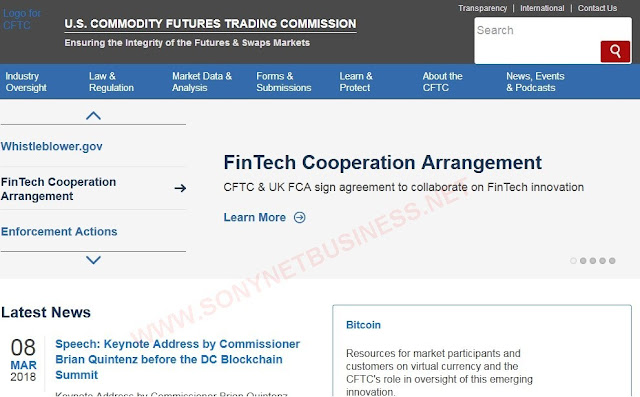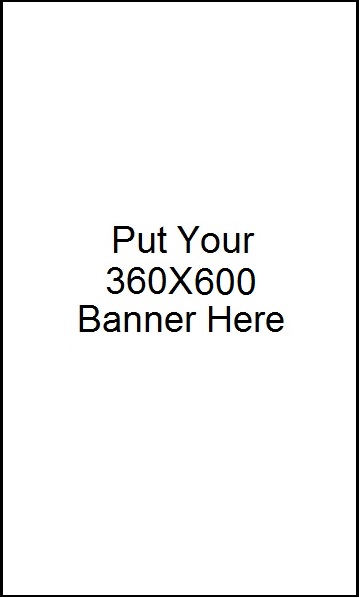 |
| In the United States, Forex trading is legal |
With a large daily trading volume, the global forex market is exceptionally liquid. Furthermore, the market is open for trading 24 hours a day, five days a week, allowing you to trade whenever you want. As a result, the forex market has drawn a large number of investors from all over the world due to its benefits and conveniences.
However, forex trading in the United States differs from that of other countries. Despite the decentralised nature of the forex market, dealers in the United States face more regulations than those in off-shore countries. The forex market in the United States is strictly regulated, and brokers must follow rigorous criteria.
Understanding the Forex Trading Environment in the United States
The forex trading sector in the United States is substantially different from that of the rest of the world. Providing forex brokerage services in the country is, first and foremost, more difficult than doing so in other countries.
A forex trading customer in the United States is defined by law as any individual or business with a net worth of less than $10 million. The law in the United States is designed to protect the interests of small investors.
The forex trading business in the United States was heavily regulated in the aftermath of the global financial crisis of 2007-2010. The Dodd-Frank Act was passed into law in 2010 to clean up Wall Street's business practises and protect consumers from exploitation. Its passage, however, resulted in the demise of several U.S. forex brokerage operations.
In 2006, there were approximately 50 brokerage firms in the country offering forex trading services to customers. However, with the passage of the Dodd-Frank Act, that number has dropped dramatically. Foreign forex brokers are likewise prohibited from recruiting US consumers under the statute.
The United States' market share in the forex sector has shrunk significantly since the Dodd-Frank Act was enacted. In 2009, the country accounted for 6% of global retail FX trading volume. In 2016, that percentage had dropped by half to 3%.
The United States government has imposed stringent regulatory restrictions on brokers (including introducing brokers) who wish to provide services to customers. Brokers must be registered with the NFA (National Futures Association) and regulated by the CFTC before allowing U.S. individuals to trade (Commodity Futures Trading Commission).
The NFA and the CFTC define the regulatory framework that ensures market participants' transparency, honesty, and protection. Together, the two authorities ensure that the forex sector in the United States is as free of fraud as feasible.
The forex sector has thrived in locations with more permissive restrictions around the world due to the existence of considerably harsher rules in the United States.
The CFTC's and the NFA's roles
The CFTC is an independent United States government organisation entrusted with safeguarding financial market openness and integrity by eliminating hazards such as fraudulent market operations, market manipulation, and financial malpractices. It was established in 1974.
A screenshot of the CFTC's website is seen below.
 |
| The CFTC's and the NFA's roles |
Since the financial crisis of 2007-2010, the agency has been enforcing tight operational norms that control the activities of brokers and other financial institutions operating under its jurisdiction. Finally, the CFTC wants to increase traders' general trust and confidence in the safety of their funds and trading capital.
The CFTC maintains its online scam list as well as the RED List (Registration Deficient List) with the most recent deceptive instances in order to eliminate fraudulent operations in the US FX market. If a broker is regulated by the CFTC and is found to be in violation of any regulations, the agency will take steps to protect investors, including imposing stiff fines and sanctions.
The NFA, on the other hand, works under the CFTC to ensure the integrity of the United States' financial markets. The NFA is a self-regulatory body that was founded in 1982. The CFTC requires forex brokers and many other forex businesses to register with the National Futures Association (NFA).
A screenshot of the NFA website is shown below.
 |
| In the United States, Forex trading is legal |
Instead of directly regulating brokers and other financial institutions, the CFTC delegated much of that authority to the NFA. The NFA is in charge of regulating the operations of everyone who wants to work in the financial business in the United States.
Both authorities work together to monitor the operations of member firms and ensure that transparency and fraud-free environments are maintained. They also participate in the resolution of consumer disputes.
Despite the fact that the NFA oversees the regulation of such organisations, any forex trading broker operating in the United States should obtain a registration certificate from the CFTC. As a result, the NFA regulates the financial activities of a CFTC forex trading broker appropriately. Financial misconduct and investor abuse are considerably decreased as a result of the dual regulation.
Forex Trading Regulations in the United States
Capital requirements are minimum
The CFTC's Dodd-Frank legislation have set exceptionally high minimum capital requirements for forex brokers.
Any individual forex trading firm working in the area must have a minimum capital of $20 million. If the sum owed to traders exceeds $10 million, they must have 5% of the total.
The CFTC hopes that by imposing this minimum capital requirement, brokers will be able to maintain their customers' positions without going bankrupt if markets face unanticipated volatility.
In comparison, the minimum capital requirements in Cyprus, which is home to a large number of forex brokerage firms, range from $42,000 to $1 million.
Most brokers are attracted to Cyprus because its European Union membership allows enterprises in the country to lawfully offer forex trading services to other EU countries while being subject to less stringent regulation than many other EU countries.
Leveraging
Forex trading is made possible through leverage, which can be a double-edged sword. In fact, the forex market has developed significantly as a result of leverage, which permits traders with limited funds to open transactions with higher sums of money. That's why some brokers advertise leverage ratios as high as 1000:1.
In the United States, however, rules limit leverage to 50:1 on most major currencies. On a few others, the odds are 33:1, and on exotic pairs, the odds are 20:1. This restriction was imposed to reduce the risk taken by investors who do not fully comprehend the risks associated with leverage.
True, if leverage is applied incorrectly, it can substantially magnify a trader's losses. By imposing a leverage limit, US regulators hope to guarantee that traders follow correct risk management procedures and avoid incurring needless losses. This appears to make FX trading less profitable for US traders with insufficient cash.
Authorization
Before delivering their services to clients in the United States, all financial institutions—such as forex brokers, introducing brokers, and fund managers—must be registered with the CFTC and regulated by the NFA.
Every forex brokerage firm is assigned a unique registration number by the CFTC and the NFA, which is publicly available. The Commodity Futures Trading Commission (CFTC) maintains a comprehensive online database of fully licenced brokers. All registered firms and people can be found using NFA BASIC. Traders can check the legitimacy of a broker before putting their money with them.
Furthermore, registered forex brokers must provide the NFA with audit reports and financial data on a regular basis. The reports should show how a broker handles both its own finances and the money of its clients.
Hedging
If you're on a losing trade, you have three options: leave it, keep it until the market switches direction, or make a new trade in the opposite direction.
Hedging is the final approach, and it is effective for reducing the impact of losses on a trade. If your sell order does not function as intended, you can put a buy order on the EUR/USD, for example.
Hedging is not permitted in the United States, regardless matter how beneficial it is. Hedging, according to the country's regulations, disadvantages traders by causing them to pay double spread fees and incur higher trading costs.
In fact, in the United States, brokers are compelled to follow the First-in-First-out regulation. Brokers are required by the FIFO rule to exit traders' running positions in a single currency pair in the order in which they were placed.
If a trader has two open positions on the EUR/USD, for example, the first order should be closed first before the second. As a result, if a trader tries to exit the second order, the first one will be automatically exited, regardless of losses or gains. This regulation reduces the flexibility and difficulty of trading forex in the United States, yet that is how the country runs.
Funds' safety
Every forex trader must be concerned about the safety of his or her funds. As a result, US regulators have put in place a number of safeguards to ensure that traders do not lose their hard-earned cash.
The CFTC has charged the NFA with ensuring that every regulated broker's money are kept in a segregated account separate from the broker's own operating accounts. Brokers will be unable to flee with the funds if the unthinkable occurs.
Every broker must keep his or her cash in a certified financial institution within the country, according to the NFA. Also, credit cards are not accepted for funding forex trading accounts, but debit cards are.
Forex Brokers in the United States
Despite the stringent regulatory environment, several brokers have chosen to stay regulated in the United States and continue to accept US clients.
Here are some well-known brokers who accept US clients.
Forex.com
Forex.com is a reliable broker that allows American traders to participate in the profitable forex market. Since 2001, the firm has been dedicated to providing customers with an unparalleled trading experience.
It is owned by GAIN Capital Holdings, Inc., a NYSE-listed parent firm. The main office is located at 135 US Highway 202/206, Bedminster, NJ 07921, United States.
Currency.com has earned a reputation for providing reliable and trustworthy services to clients based on its years of experience connecting retail traders to the forex market.
The broker keeps client funds in segregated accounts, provides excellent transaction execution, and never engages in proprietary trading.
OANDA
OANDA, based in Toronto, Canada, was founded in 1996 and is an award-winning company that provides authentic, accurate, and dependable access to the highly liquid forex market.
The brokerage company has developed from a tech start-up to a recognised global firm with offices in over 200 countries, including the United States, since its inception.
OANDA is a member of the NFA and is registered with the CFTC under licence number 0325821. As a result, this demonstrates that the broker is committed to providing clients in the United States with transparent and high-quality trading services.
OANDA traders in the United States are unable to hedge trades or access leverage levels greater than 50:1. Traders also benefit from the broker's fair trading conditions, maximum fund security, and rapid resolution of difficulties.
TD Ameritrade is a New York-based brokerage corporation.
TD Ameritrade, which was founded in 1971, has a long history of supporting consumers in achieving their financial objectives. The company's headquarters are in Omaha, Nebraska.
The brokerage firm claimed approximately 11 million funded client accounts in September 2017. This demonstrates its unwavering dedication to provide traders with a favourable trading environment; otherwise, traders would not be flocking to it.
Professional customer service, intuitive trading tools, and access to a wide range of investment options are all available through TD Ameritrade.
Some offshore brokers operate outside of US regulations and accept US clients. Traders should be aware that they are not protected by the NFA or the CFTC if they use those brokers.
Forex brokers based outside of the United States that offer services to residents of the United States
LQDFX
Since 2015, LQDFX.com has been providing services to clients all around the world, including US traders. LQDFX takes pride in adopting STP technology to ensure that there are no conflicts of interest between the company and its clients. All trades are processed through an aggregator, which obtains the best pricing from the top-tier institutions that LQDFX utilises as liquidity providers.
LDQFX safeguards all of its customers' funds in segregated accounts to ensure their security. This means that customer monies are kept separate from company finances and cannot be used to repay debtors.
Clients can trade over 70 currency pairs, as well as indices and commodities, with LQDFX. MT4 can be used to trade all of them.
Conclusion
As this article has demonstrated, forex trading in the United States differs from that in the rest of the globe. While rigorous rules are necessary to guarantee that the forex sector remains trustworthy and transparent, they have prohibited most forex brokers from establishing operations in the country and forced many former US brokers outside.
As a result, if you want to trade with a regulated broker in the United States, you need carefully assess if the benefits are appropriate for your situation.
Good luck with your trading!














.png)
.png)